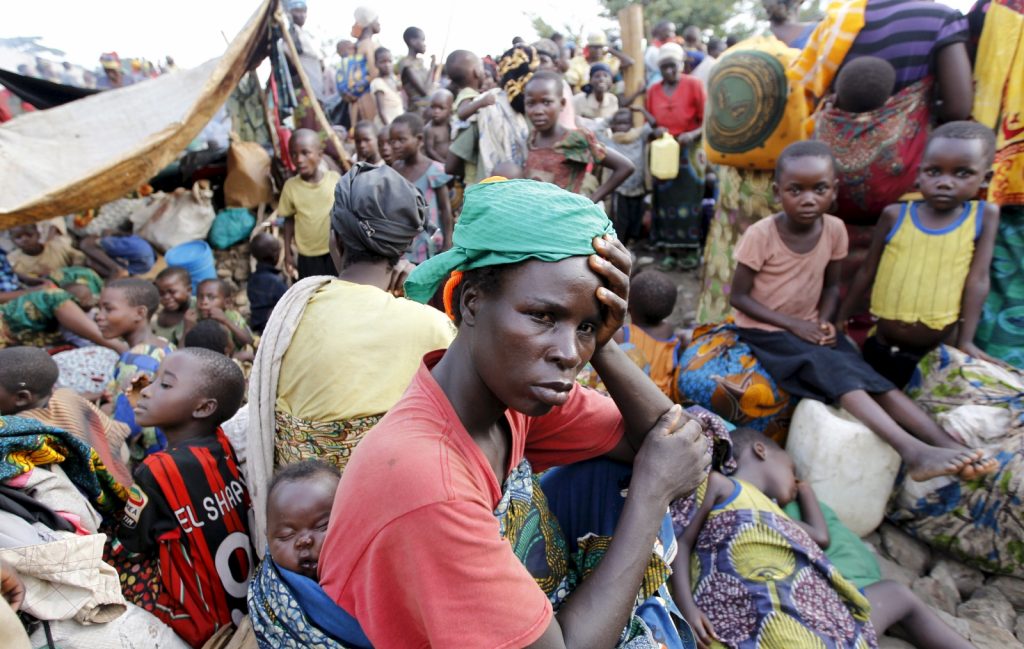Burundian refugees who returned home on Thursday say they left camps in Tanzania because women are often raped when they go looking for firewood and because Tanzanian police have beaten and arrested men.
Reuters interviewed 10 of the 590 refugees who returned, the first batch transported under an August agreement between Burundi and Tanzania to repatriate nearly 200,000 refugees from camps in neighbouring Tanzania, where they had sought refuge from a surge of political violence at home.
The agreement sparked fears among some refugees they might be forced home despite assurances from both governments and the United Nations that would not happen.
A U.N. Commission on Burundi reported last month that rapes, torture and killings by the security forces are still common, and warned there was risk of a fresh wave of atrocities as the landlocked state approaches an election in 2020.
![Of Burundi's more than 250,000 refugees, most are young women and children [Dai Kurokawa/EPA]](http://abovewhispers.com/wp-content/uploads/2016/09/Burundi-Refugees.jpg)
Sexual violence and harassment by security forces are common in refugee camps all over the world. None of those Reuters interviewed suggested this had increased after the August deal to repatriate the refugees.
“When women go in the villages to look for firewood for cooking, they were raped,” said Selemani Ruratanye, a 50-year-old father of six. “Men are beaten … or jailed (by the Tanzanian police).”
One refugee said his neighbour’s son had been beaten by police after he went to look for firewood. Police did not like refugees chopping down trees for firewood, he said, and had been cracking down on the practice since March.
“All allegations are false, just to paint our image bad. The police operate very professionally,” said local police commander Martin Otieno.
FEARS OF CONFLICT
Several of the refugees said they fled Burundi in 2015, fearing civil war was about to break out again after President Pierre Nkurunziza ran for a third term in office.
Opponents accused him of breaching the constitution and the terms of a 2005 peace deal that ended an ethnically fuelled civil war which killed 300,000 people. Hundreds of people died in the political violence that followed the disputed polls.
When the refugees returned on Thursday, government officials and U.N. workers met their buses to offer them three months worth of food, blankets and kitchen utensils as well as a small payment of $37 per adult and $18.5 per child.
“That money will help you send your children to school or start income-generating activities,” Antoine Ntirandekura, an adviser in the interior ministry’s repatriation department, told the returnees.
Tanzanian officials and the United Nations said all of Thursday’s returns had been voluntary, and the U.N. said it had helped more than 76,000 refugees to return to Burundi in the past two years.
The United Nations refugee agency said it had it had not promoted the repatriation programme but was ready to help anyone who wanted to go back.
“We urge the governments of Tanzania and Burundi to respect their commitments to uphold international obligations and ensure that any refugee returns remain voluntary and that no refugee or asylum seeker is returned to Burundi against their will,” the agency said in a statement.
Some refugees had previously expressed fears that they might be forcibly returned to Burundi after Tanzania’s Home Affairs Minister Kangi Lugola said in a video posted to Twitter in August that Tanzania would send home “all Burundians” because “Burundi is peaceful”.

